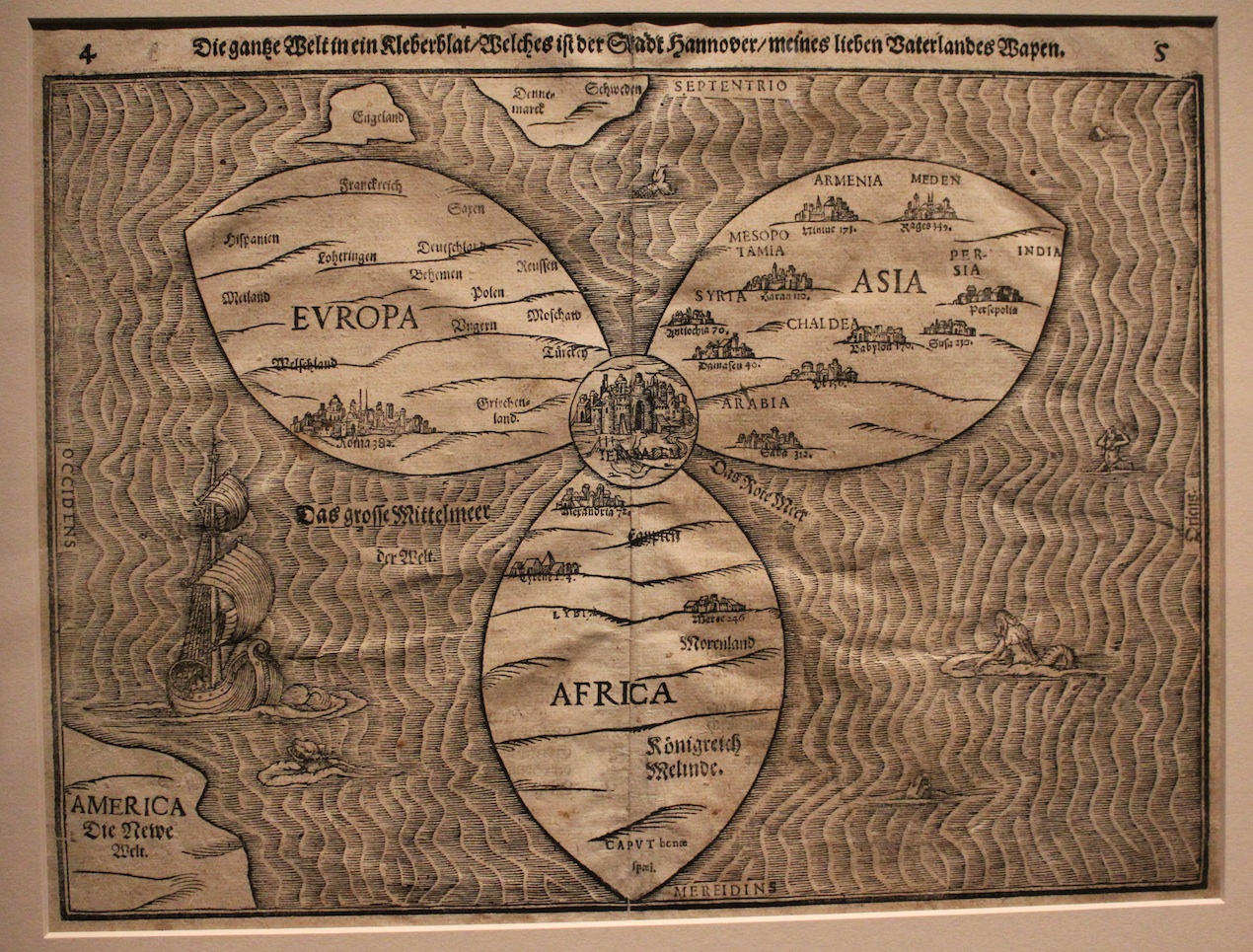Introducing Omphalos: Lawfare's New Site Devoted to the Middle East
The Greek word "omphalos" designates the center of the world, a spot usually containing some sort of stone. The ancient Greeks believed the omphalos to lie in Delphi. For many Christians and Jews, it lies in Jerusalem, as the 1581 map above reflects. And traditional Muslims place it in Mecca.

Published by The Lawfare Institute
in Cooperation With

The Greek word "omphalos" designates the center of the world, a spot usually containing some sort of stone. The ancient Greeks believed the omphalos to lie in Delphi. For many Christians and Jews, it lies in Jerusalem, as the 1581 map above reflects. And traditional Muslims place it in Mecca.
Today, as part of the new Lawfare site, we are unveiling Omphalos, a Lawfare channel devoted to the Middle East. Turmoil in the contemporary Middle East implicates a wide array of legal questions, bears huge costs for civilian populations, and poses diverse challenges to policymakers, activists, lawyers, and reformers alike. While the world has many regions of concern for Lawfare readers, for the issues we treat on this site, the Middle East is a kind of omphalos. We have designed Omphalos to take an interdisciplinary look at this complex and heterogeneous area, to analyze Middle East conflicts but also to put those conflicts in often-missing perspective.
We are publishing Omphalos jointly with two key partners: Academic Exchange, an educational non-profit that seeks to deepen understanding of Israel within the international academic community, and the Brookings Center for Middle East Policy and its blog, Markaz. Omphalos will include all of the material from Lawfare, of which there's a lot, that deals with the Middle East and North Africa. It will also incorporate non-legal materials from Markaz, which includes work by Brookings's many excellent Middle East scholars. (Full disclosure: The director of the Brookings Center for Middle East Studies is my wife, Tamara Cofman Wittes, though she has not participated in developing the relationship between Lawfare and Markaz, which is edited by the Brookings Iran scholar Suzanne Maloney.) It will also include material from outside scholars, journalists, and analysts—expect some exciting announcements on this score in the weeks to come—from a diverse array of institutions and points of view.
One of the opportunities Omphalos presents to Lawfare is the ability publish work by the many first-rate scholars who have been involved in Academic Exchange's programming in the past and will be in the future. This sort of work has already begun; see, for example, this excellent piece by Stephan Haggard of the University of California San Diego on Prime Minister Netanyahu's speech before Congress, the Iranian nuclear program, and the North Korean nuclear precedents. We look forward to developing a great deal more such content in the future. More generally, we have been developing other content for Omphalos for some time, including the Middle East Ticker feature Yishai Schwartz and Jennifer Williams have been writing.
The core idea is that a great many national security lawyers need to know more about the Middle East (try analyzing whether ISIS is covered by the AUMF without knowing a lot about the organizational structures and histories of both ISIS and Al Qaeda), and a great many Middle East scholars could use better information about what international law, the law of armed conflict, and the national security legal policies of both the United States and the region's countries have to say about the issues that roil the region. We are hoping Omphalos will integrate ideas, disciplines, expertise, policy, and law in a fashion unique in the many-faceted debates over the changing Middle East.
Welcome.





